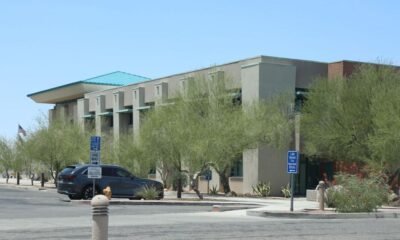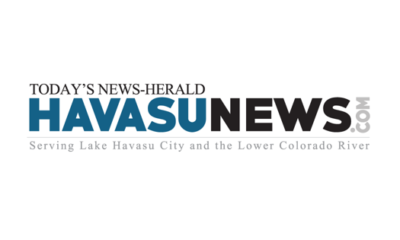arizona
AZ Budget Report Crushes ESA Criticism

By Matthew Holloway |
The Goldwater Institute recently challenged claims that Arizona’s universal Education Savings Account (ESA) program has negatively impacted students and strained the state budget. A detailed report authored by Matt Beienburg, the institute’s Director of Education Policy, asserts that the universal ESA initiative has proven beneficial for Arizona’s students, families, and taxpayers alike.
Beienburg highlighted key findings from the report in a post on X, indicating that since the program’s expansion, Arizona has experienced a $2 billion budget surplus in one year and overall K-12 savings in the subsequent year. This was achieved while accommodating 75,000 ESA students at a lower taxpayer cost compared to their peers in public schools.
In a follow-up comment, Beienburg criticized certain media outlets for misrepresenting the ESA program. He stated, “Arizonans deserve better than willful or sloppy misrepresentations by @propublica, @joedanareports, @laurieroberts & @arizona_sos, who attack the ESA program while ignoring record public school costs and recent incidents of misspending.”
Beienburg’s breakdown of the Arizona Legislative Budget Committee’s analysis underscores several critical points. Contradicting the narrative pushed by some journalists and advocacy organizations, he indicated that the first two years of the ESA program and the latest report from state budget analysts reveal a different reality.
According to the committee’s findings, the total enrollment across districts, charters, and ESAs is projected to save approximately $352,200 for the fiscal year 2024, compared to the enacted budget.
He also pointed out that the budget deficit projected for 2023-24 stemmed from Democratic Governor Katie Hobbs’ decision to veto a budget that Republicans had initially passed. This budget would have preserved over a billion dollars in reserves even while fully funding the ESA program.
Instead, Hobbs approved a new budget that raised state spending by $2 billion, marking the highest level to date and depleting the state’s surplus, compromising its ability to offset lower-than-expected revenue collections.
Beienburg continued to berate critics of the ESA, claiming their statements stem from “ideologically motivated, often factually dishonest misrepresentations.” He argued that these critiques either reflect a misunderstanding of the facts or a deliberate attempt to distort reality.
The report also addresses the assertion that the ESA program disproportionately benefits affluent families engaging in homeschooling or private education. Beienburg challenged this notion, stating that the demographics of ESA users span a wide socio-economic spectrum—from low-income families to those with substantial wealth. Multiple credible sources have corroborated the diverse backgrounds of ESA families, ranging from impoverished communities to affluent neighborhoods.
He further criticized advocacy organizations, citing their tendency to present a “national consensus” that ignores the diverse perspectives of families seeking better educational opportunities. Beienburg concluded that the prevailing education system has failed many families, particularly highlighted during the COVID-19 pandemic, and that expanding educational options through ESAs and similar initiatives can provide pathways to improved student outcomes.
Matthew Holloway is a reporter for AZ Free News. For further updates, follow him on X or reach out via email with tips to Matthew@azfreenews.com.

















